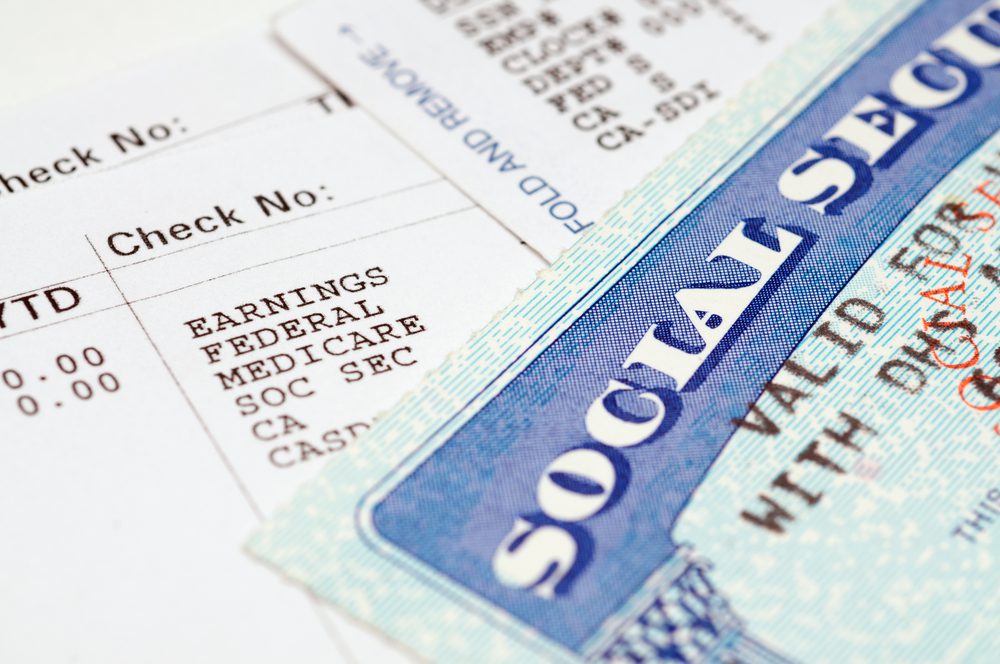
Secure Your Future: Key Considerations for Creating an Estate Plan
The idea of writing a will can feel uncomfortable, but it’s an important step in planning for the future and a thoughtful way to protect the ones we love. It’s a way of making sure our wishes are honored and our assets are handled according to our preferences. The process of creating it doesn’t need to be complex and overwhelming, and it’s simply about providing peace of mind for yourself and your loved ones. A will is a key part of planning, and it lets you decide who will receive your assets as well as even take care of your minor children after your pass. Some assets, such as retirement accounts, can be easily passed by naming beneficiaries, but keep in mind that having a poorly written or outdated will can cause problems and ad costs.
Experts suggest updating your basic estate planning documents after major events like getting married or buying a house and regularly reviewing them, especially when you’re close to retirement.

Let’s go through the most important steps to write your estate plan with clarity and confidence.
1. Decide how you make it
When you’re creating a will, there are two main options: you either work with an estate planning attorney or you use DIY software. Reputable online software can help you create an estate plan without struggles. Some popular ones are LegalZoom, Fabric by Gerber Life, and Quicken WillMaker & Trust.
Still, many situations can benefit from the expertise of an estate planning attorney, so consider it. As there are many rules and nuances involved, an attorney will do the proper job. Online sources can help if your situation is pretty clear, but you need to understand how to use them properly. Professionals point out some struggles their clients seem to encounter in their online journey, such as not finding it easy to fill out, sign, and notarize the documents correctly (which can lead to being declared invalid).
Hiring an attorney to assist you in this job costs a few thousand dollars while using the software can bring you to $100 or even less. It’s understandable why people prefer software, but it’s essential to be aware of the costly complications in the future if you don’t make it right. So, weigh your options carefully and choose the method that fits you best.
2. Beneficiaries
Not naming or updating beneficiaries on important accounts is a common mistake in estate planning. Beneficiaries are the ones you plan to designate to inherit your assets, like bank accounts, retirement accounts, and life insurance policies.
The names listed on bank accounts are dictating where those assets go, and it’s important to remember that those beneficiary designations take precedence over your estate plan. This means if you’ve listed a beneficiary for an asset, they will receive it directly, regardless of what your will say.
This is why, to avoid potential conflicts and have your wishes honored, review and update the beneficiary designations after major life changes, like divorce, marriage, or the birth of a child. Keep the records up to date to prevent complications and create a smooth estate transition for your loved ones.
3. Choose the executor
The executor is the person responsible for managing your estate, setting up debts, and distributing all the assets according to your instructions, so they play a crucial role in ensuring your wishes are fulfilled. It’s absolutely important to choose someone organized, responsible, and detail-oriented.
It’s very common to choose an executor from your family members or close friends, but if you feel like you don’t have relatives that you can trust, consider naming a professional, like an attorney or a certified public accountant.
In the process of choosing an executor, you should think about their ability to handle financial matters and their sense of responsibility. This is a significant commitment, so it’s important to have an open conversation about this role to prepare them for the task ahead.
You can, as well, appoint a corporate trustee, but this is a choice that can often be expensive. Corporate trustees charge around 1% of the estate value each year, no matter if they are actively managing the estate or not. They usually require all your assets to be held with them, something that will lead to a double dip in costs.
A corporate trustee can offer professional management and execution, but it’s important to weigh the costs again and think about the needs and complexity of your estate. For many individuals, a family member or a trusted friend can be a lot more affordable and a more personal choice.
4. A guardian for your children
If you have dependent children, it’s very important to name a guardian for them. You don’t need any permission to designate someone, but it’s wise to discuss the intention with the person you wish to name. Make sure they are willing and prepared for this important responsibility.
It’s a good idea to name multiple guardians, so in case your first option is unable in any way to fill the role, there is a backup plan, and your children will be cared for by someone you can trust. Moreover, you can specify any persons you do not want to serve as guardians, preventing any potential conflicts and making sure your children can be placed in a nurturing environment that aligns with your values.
Take time when you choose the right guardians, as this is essential for your children’s future. Come with an option that will leave you with peace of mind knowing they are cared for according to your wishes.

5. Who gets what?
This is one of the most challenging aspects of creating a will. Determining which assets to include, thinking about who will inherit what, So, as you go through the process, consider the unique needs and the circumstances of your heirs.
For example, your young grandchildren may not be in a position to manage money responsibly, so in this case, you can choose to leave them a smaller amount of money now with the understanding that investing money can help it grow over time, significantly, when they are ready to use it. This way, you know that they will benefit from a more substantial inheritance in the future.
If your heirs are young adults who actually need financial support for education, they may not have the time to invest their inheritance and watch it grow. You can consider leaving them a larger sum to cover the costs of their education and allow them to focus on their studies without financial stress.
It’s important to be specific about who receives what because it doesn’t only prevent misunderstandings but also ensures your assets are distributed in the best way to support your loved one’s needs and goals. By planning your will thoughtfully, you can make a significant difference in their financial well-being.
6. Be realistic
When you’re thinking about distributing your assets, be practical. Remember that one of the reasons siblings stop talking to each other after one parent passes is due to a will that states assessment should be divided equally, and usually, that’s not feasible.
For example, if you have three children and all of them play the piano, the first child may choose the Steinway piano, while the others remain with less desirable options. The thing is, you can’t divide tangible assets equally, which can lead to strained relationships among siblings as they can foster feelings of unfairness after the estate is settled.
This is why you need to be specific about who receives what, anticipate potential disagreements, and aim to prevent them by assigning valuable assets to specific individuals instead of focusing on equal division. By doing so, you will minimize the chances of disputes and honor the unique relationships and preferences while keeping them fair and respectful in the distribution process.
7. Attach a letter
Writing a letter or a memorandum can be a thoughtful way to avoid disagreements in your family and reduce any potential hurt feelings. In this document, you can explain in your own terms the reasons behind your decisions in the asset distribution.
For example, if you’ve chosen not to divide your assets equally, the letter can provide a compassionate and clear explanation of your reasoning. It can be based on financial needs, personal preferences, or relationships; however, it offers an insight into your choices that can help with misunderstandings and resentment. Moreover, it can provide a chance to address sensitive issues directly, discouraging unhappy family members from contesting the will.
A letter will allow a more personal touch, other than clarifying your financial decisions. By expressing your thoughts, wishes, and words of encouragement, you will make them more open to your wishes fulfilled through the will, by easing tensions and creating a sense of understanding within the family.
This is an additional step that can go a long way in maintaining harmony and making sure your legacy is carried out with compassion and respect.
8. Sign properly
Signing your will is crucial to ensuring legality. If you don’t sign it correctly, a judge could deem it invalid, and this can cause serious struggles for your estate.
With most states requiring your will to be signed in the presence of a witness, it’s important to note that the witnesses should not be a part of the individuals who stand to inherit anything from your will, for impartiality reasons. Witnesses must also be at least 18 years old and have discernment.
It’s ideal to choose people who are likely to be around after you’re gone because, in case your will is contested, a judge may need to call one or more witnesses to testify about the will’s execution. The number of witnesses can vary by state, so check the laws in your area or consult an attorney to make sure your will checks all legal requirements.
Take time to sign and execute your will properly to know that your final wishes are honored and prevent unnecessary legal challenges.
9. Store your will safely
After you complete your will, it’s crucial to store it in a safe and accessible location. Make sure that people you can trust know where to find it, so let your executor, attorney, or a close family member know where to find it. Keep it together with other important documents, such as life insurance policies or passwords to financial accounts. You can consider keeping the original copy of your will in a fireproof safe to protect it from damage.
More than physical storage, some states allow electronic wills (e-wills). These digital versions are great, but they need to meet specific legal requirements to be valid. An e-will can be in text form, so no audio or video, following state laws about whether witnesses need to be physically present or participate remotely.
Electronic wills are relatively new, and the rules surrounding them can vary widely from state to state.
However, no matter what format you choose, it’s important to review the state’s requirements or consult an attorney to make sure you store your will in a way that can hold up in court. A securely stored will can help avoid complications and offer easy access to it to your loved ones when needed.
10. Review and update
It’s essential to periodically review and update the estate plan to make sure it still reflects your current wishes and life circumstances. Experienced attorneys advise you to update your will every five years, “just like your car oil is changed every 3,000 miles.” And yes, some people don’t always remember to do so, leading to potential problems. Just make sure you keep your will updated, as this is essential to protecting your estate.
With major life events comes an immediate need to review your estate documents. Other events, like the birth of a new child or grandchild, divorce, marriage, or the death of a spouse or a parent affecting your financial situation, are also key moments of reviewing it. Updating your will helps with distributing your assets according to your current wishes, and your loved ones are properly cared for.
By reviewing your estate plan constantly, it will be well adjusted for changes in tax law, financial growth, and the addition of new assets. This is also a chance to revisit your chosen executor, beneficiaries, and guardians to make sure they are the best choices for your estate. Keeping updated will ensure an effective plan that stays relevant to your evolving life circumstances.
11. Other Estate Planning Documents
The will is an essential part of your estate planning, but it may not cover all your needs. For a comprehensive plan, it’s important to incorporate additional documents addressing various aspects of your financial and medical wishes.
Trusts can be powerful tools to transfer your assets according to your specific instructions. You can choose from many types of trusts, including testamentary trusts that can help you establish your will to manage the distribution of assets after your passing. This will allow you to distance the one who receives but also how they are distributed, providing great control over your estate.
You can consider creating a will outlining your preferences for medical treatment in case you’re unable to communicate your wishes. This is a document securing your healthcare decisions that align with your values and desires.
Another powerful document is a power of attorney, as this will allow you to designate someone to make the legal and financial decisions on your behalf in case you’re unable to do so. This is a vital step that can ensure your affairs are managed according to your wishes if challenging times arise.
These additional documents are essential for your estate plan, and they provide clarity, direction, and guidance for your loved ones so they can navigate difficult decisions with confidence and peace of mind.
On the next page, you’ll find some overall tips to consider while creating your will.

Keep in mind
Additional things you should keep in mind when creating your will are related to how clear and specific you are. For example, use precise language to avoid any confusion. When you identify who receives what, come with more details about the asset, including descriptions and locations.
Don’t forget about your personal belongings and specify who gets items of emotional value, such as jewelry, celebrity heirlooms, or artwork. You should also be aware of tax implications and how your distribution might affect your heirs financially, so consult a tax professional who will bring some clarity on the topic.
It’s crucial to include instructions for digital assets, like online accounts or social media profiles, cryptocurrencies, or any other passwords providing access to key accounts. Moreover, you can think about designating an alternative executor in case the first choice is unable or even unwilling to serve.
Another important and beneficial thing to do is to actually discuss your will with your family. Open communication can prevent misunderstandings and disputes. For extra safety, you can have your will notarized, but this is not always necessary.
You can consider a no-contest clause to discourage heirs from contesting the will, meaning that it is stipulated that anyone who disputes the will may lose their inheritance.
When writing the letter, consider reflecting on your values, hopes, and dreams for your loved one, as this will provide emotional support for your decision and, why not, a source of inspiration and wisdom for your loved ones.
If your estate is complex or you have some specific concerns, you should work with an estate planning attorney who can help you create a comprehensive and legally sound will.
By taking these steps into consideration, you can create a thoughtful will that will reflect your wishes while protecting your loved ones.
If you want to guide yourself with a standard model, this is one you can use: 2024 Last Will and Testament Package with Minor’s Trust, Guardianship Provisions, and Comprehensive Legal Support
Read next: Sitting on A Gold Mine? Here’s how To Avoid Paying Taxes (6 Law-Proof Methods)









